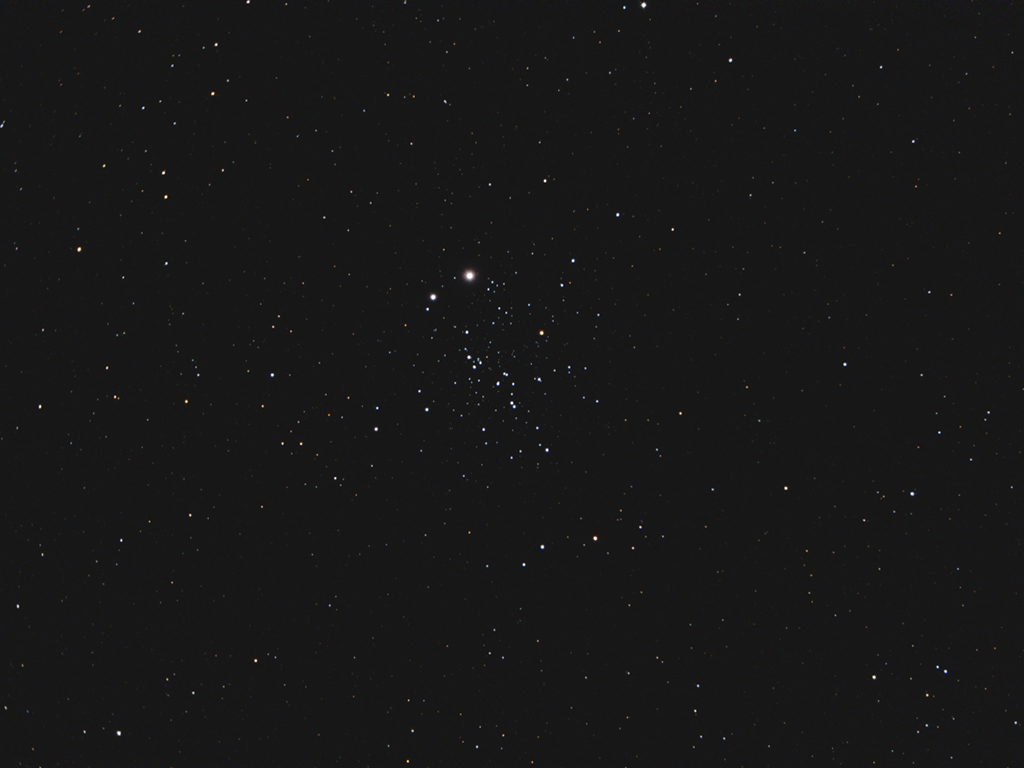
Telescope: 8” LX80 @ f/6.3, LX90 mount, altaz mode
Camera: Baader modified Canon 600Da, interval timer
Filter: GSO IR Blocking Filter
Guide scope: None
Exposure: 27x10sec, ISO 1600, saved as RAW
Darks: Internal (Long Exposure Noise Reduction On)
Flats: 32×1/25sec, Tee shirt flats taken at dusk
Average Light Pollution: Red zone, Bortle 8, fair transparency
Lensed Sky Quality Meter: 18.5
Stacking: Mean with a 1-sigma clip.
White Balance: Nebulosity Automatic
Software: Deep Sky Stacker, Nebulosity, Photoshop
NGC 457 is one of my favorite open clusters in just about any size telescope. It makes a fine target for binoculars and small telescopes and becomes a very rich field in larger scopes. The two bright distinctive foreground stars makes it fairly easy to locate. In a small telescope it is worth taking some time with this field. At first your eye may only see the two bright foreground stars and a few of the brighter stars of the cluster. As your eyes relax you may start to see some of the fainter background stars and the cluster will begin to blossom into a beautiful field of stardust.
This is part of a series of images that I will be taking to explore deepsky imaging using fairly basic equipment and techniques. I was curious about this particular field as the mount was fairly busy on both axis to track it and it worked quite well.
NGC 457 is currently well placed in the northeast after sunset.
Recent Comments